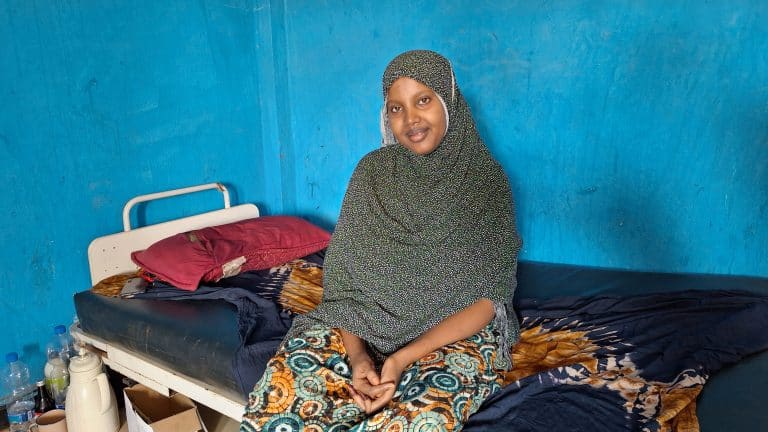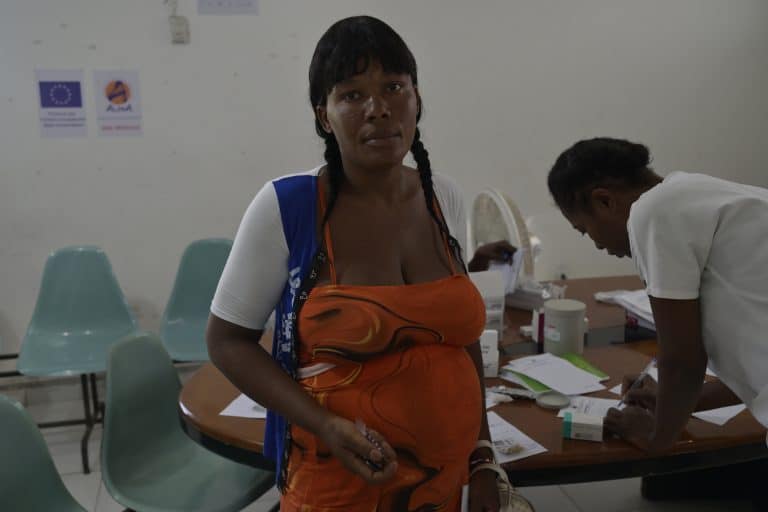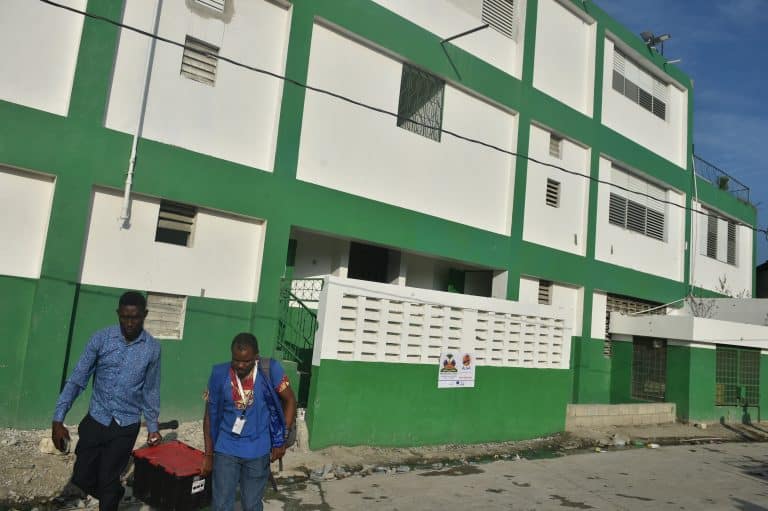Good nutrition, access to free health care and vaccinations during the first 1,000 days of life is vital for proper physical and cognitive development. Poor nutrition and recurrent infections during this time can lead to irreversible stunted growth, and reduced performance at school and work. It also increases a child’s risk of early death.
“I dare not even think about it, it’s so painful,” the mother from Boulbaram, Niger, said, recalling her past experiences as an expectant mother. “But thanks to 1,000 Days, my [latest] pregnancy and delivery went well. I had check-ups six times before the birth, and I was given blood tests, medicines and a mosquito net.”
Following the birth of her son, she says he received a complete series of routine vaccines, such as polio, tuberculosis and diphtheria, – something Zayatou couldn’t afford for her previous children. Today, she says, her son is in “great shape.”
But not all children are so lucky. Sub-Saharan Africa has some of the highest rates of child mortality and childhood malnutrition in the world. Nearly half of all deaths in children under the age of five are attributable to undernutrition, according to UNICEF. In Niger, in the areas where ALIMA works, more than half of young children are stunted due to lack of access to proper nutrition and most children experience some form of wasting before the age of two.
“Before … it was necessary to travel 18km [roundtrip] on foot, to get care at the ambulatory health care center in Guirari,” said Gambo Lima Idi, a 32-year-old mother of five from Fouroumi in Niger. “And even if you got there, often the care was not affordable since everything had to be paid for.”
Gambo says she and the other women from her village only sought health care when they had no other choice. They all used to give birth at home.
But now, thanks to 1,000 Days, things are easier.
“We organize the health centers as ‘one-stop shops’,” said Susan Shepherd, a pediatrician for ALIMA. “Every time a mother brings in her child, he/she is screened for malnutrition, their vaccine record is checked and updated if necessary, and a nurse is available to diagnose and treat infections. Children between six and 23 months also receive a small daily amount of food supplement to prevent them from losing weight and becoming wasted.”
If the child is diagnosed as malnourished, he/she receives a therapeutic ration of a nutritious supplement, to help regain lost weight over a period of 4-6 weeks. If the mother is pregnant, she can receive pre-natal care during the same visit as her child.
“We try to make it as easy on mothers as possible and minimize the number of times we ask them to make the trip back to the health center,” Dr. Shepherd said.
Since the start of the program in Niger, local health workers say health indicators are getting better.
“With the 1000 Days project, maternal and child health indicators in my health area have improved markedly and the number of malnourished children admitted in the program has dropped significantly,” said Abdoulrazak Souley, the nurse in charge of the Guirari health center.
Gambo, who was enrolled in the 1,000 Days program in April 2015, says the benefits are clear.
“Ibrahim did not fatigue me with diseases like my other children,” she said, explaining that the 17-month old’s vaccines are all up-to-date. “He had no episodes of diarrhea and I was pleasantly surprised…He shows no evidence of malnutrition to date, even though one of his brothers, who didn’t benefit from the program, suffers from malnutrition…This project is saving our children.”
Women enrolled in the program also participate in discussions on how to prevent illnesses such as diarrhea, the importance of breastfeeding and offer of family planning services at the health center.
The 1,000 Days program is currently underway Niger and now launching in Chad. In 2016, there were 39,165 children in Niger between the age of zero and 23 months that benefitted from 1,000 Days. More than 21,000 mothers are expected to benefit from pre-natal consultations in 2017 in Niger and Chad.
The 1,000 days programme is funded by the European Community Humanitarian Aid Office (ECHO).
Photo : Sylvain Cherkaoui / COSMOS / ALIMA





